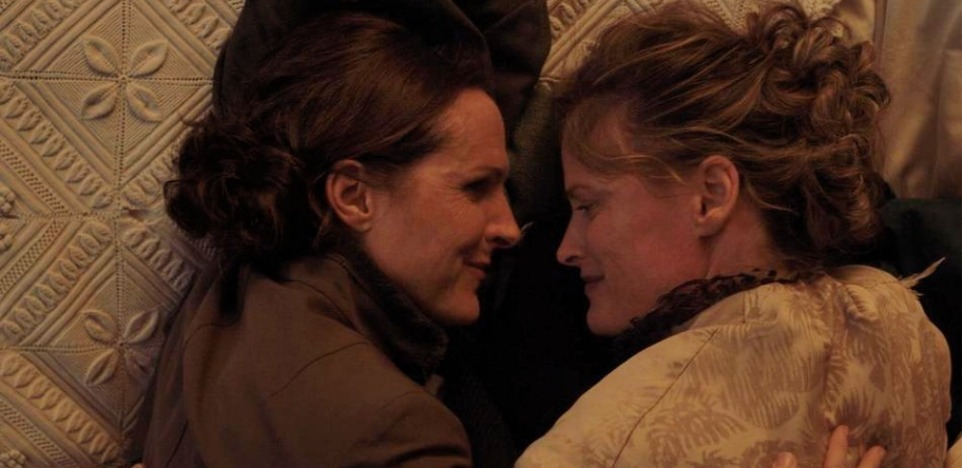The game cast of Madeleine Olnek’s seriously silly Wild Nights With Emily appears to be having such a good time, it’s positively infectious. This alone would be enough to recommend the film, but the fact that these skilled performers are having such fun while rehashing the raucous love life of famous “recluse” poet Emily Dickinson expands this story into an entirely surprising stratosphere of entertainment.
The emotional depth of Dickinson’s ouvre is often celebrated, and the common image of the Belle of Amherst is one of unsmiling solemnity. But Olnek’s take suggests that Dickinson’s depth might not have come at the expense of a shrewd sense of humor, and Wild Nights With Emily agilely succeeds at balancing both pathos and playfulness in Dickinson’s reimagined artistic and home life. With such finely-honed and thoughtful whimsy on display, Dickinson emerges as a far more complex and moving character than ever before presented on screen.
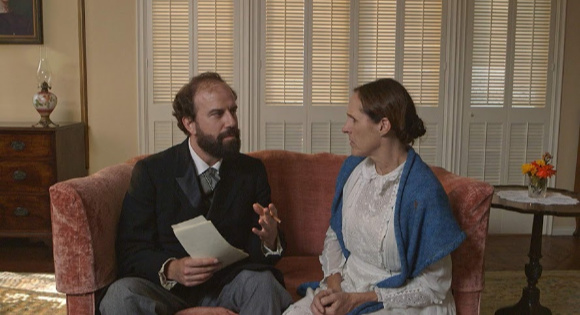
Olnek immediately departs from the more somber straightforwardness of Terence Davies’ gorgeous Dickinson biopic A Quiet Passion, opting instead to focus on Dickinson as a loudly and proudly passionate person, one who jokes and desires, who chides and pursues actual physical passion to accompany her poetic passion. Excavating a collection of letters written by Dickinson (Molly Shannon) to her sister-in-law Susan (Susan Ziegler), Olnek dares to suggest that Dickinson was not so much a shy recluse, but rather a winning and witty lover who courted and consummated a mutual, loving lesbian affair with the wife of her clueless brother Austin (Kevin Seal).
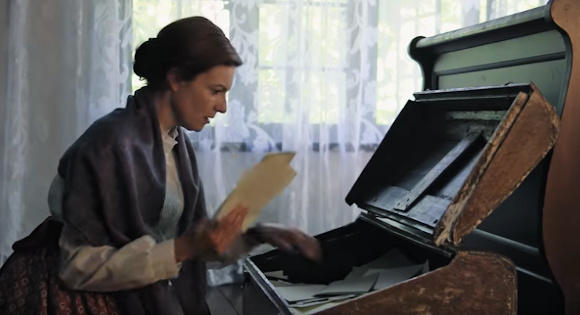
What results is a collage of kooky scenes, tied together by a framing device, juxtaposing the beautiful blossoming of Emily and Susan’s private passion with the strange circumstances that led to the pervasive public image of Dickinson’s introversion. A major contributor to this latter characterization is Mabel Loomis Todd (Amy Seimetz), a real-life editor of posthumous editions of Dickinson’s poems, who is here presented as an overbearing, self-interested killjoy pursuing her own insidious reasons for erasing Susan’s role in Emily’s life from the history books.
Mabel is the star of Olnek’s tongue-in-cheek framing device, in which she spreads rumors of Dickinson’s “spinster-recluse” existence to a ladies’ book club, touting herself as an Emily expert and secretly erasing Susan’s name from Emily’s letters following her death. Seimetz’s Mabel is also so ridiculously charming in her strange, self-satisfied bumblings, that it isn’t until late in the film that it becomes terribly clear just how horrible her erasing hatchet job on Dickinson’s work and legacy truly was and remains.
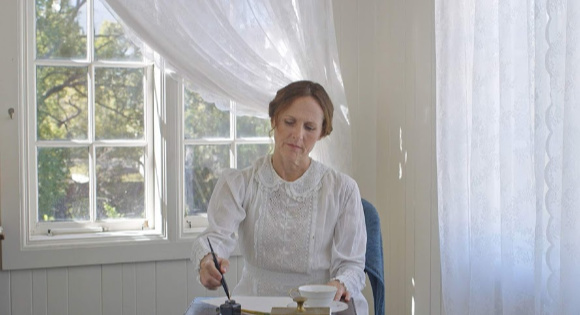
While revisiting and revising legends about Dickinson’s love life, Wild Nights With Emily also powerfully dismisses the common belief that Dickinson hid from having her poetry published during her lifetime. Shannon’s earthy Emily is not only loudly proud of her physical passions, but she’s also loudly proud of her verse. Instead of these traits making her seem boastful, it makes Dickinson more robustly relatable. It pulls down the near-mythical figure of Dickinson and grounds her again in humanity. And this full-blooded image seems far truer to the themes and words of Dickinson’s poems than the image of her as stoic, death-obsessed brooder.
In fact, it is Susan’s support of Emily’s full-throated talent that serves as the beating heart of Olnek’s film. While others, especially men like Atlantic Monthly editor Thomas Wentworth Higginson (Brett Gelman) approach Dickinson’s odd experiments with bemusement and dismissal, it is Susan who massages Dickinson’s bruised ego and reignites her creative spark. These women are not simply lovers; they’re soulmates, both serious and silly, passionate and playful, improvising spirit-filled love as they go along. Dickinson is nothing less than Susan’s restlessly creative hero and Susan is nothing less than Dickinson’s adoringly critical muse, which makes the erasure of Susan from Dickinson’s posthumous papers all the more shockingly gut wrenching.
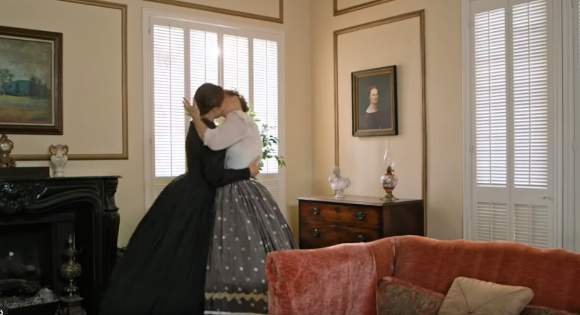
All along, Olnek keeps the tone light and the filmmaking disarmingly scrappy, suggesting a smart comedy sketch among friends left to go on long enough that its excesses turn it into something wholly different, something surprisingly spiritual. And the fun being had only adds to the depth of feeling. The sad fact that common memory has denied Dickinson such faithfully humane humor for so long gives Wild Nights With Emily a feeling of repair and restoration, and it dares audiences to just try and read her poetry again without hearing a hearty chuckle, a knowing sigh, or a loving giggle informing every line.
